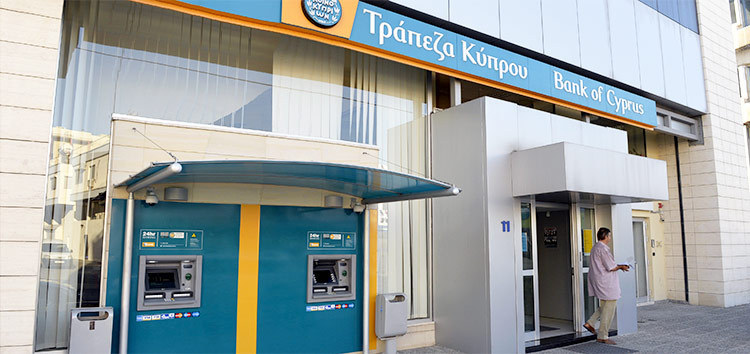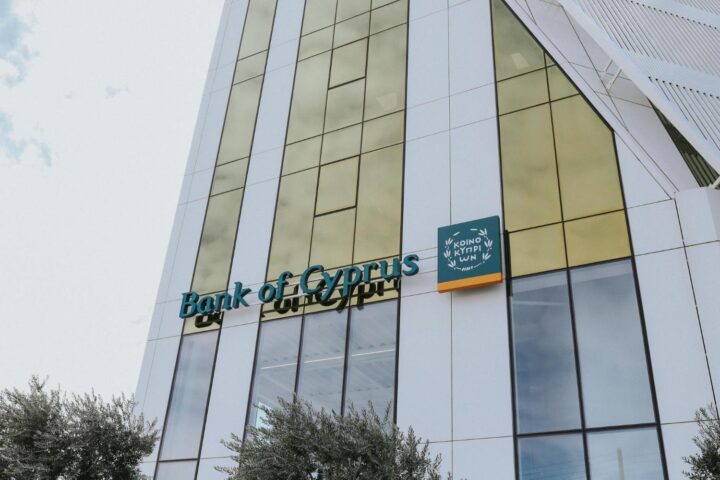Capital Intelligence Ratings has upgraded all Bank of Cyprus metrics by one notch, and maintained the outlook at ‘stable’, due mainly to improved asset quality – as measured by non-performing loans – with some uncertainties concerning the indirect impact of the conflict in Ukraine on both asset quality and profitability.
CI Ratings said it upgraded the bank’s long-term foreign currency rating (LT FCR) to ‘BB’, from ‘BB-’, as well as the bank standalone rating (BSR) and core financial strength (CFS) both to ‘bb’ from ‘bb-’.
It also affirmed the bank’s short-term foreign currency rating (ST FCR) of ‘B’ and extraordinary support level (ESL) of ‘uncertain’.
The rating agency said the bank’s economic performance “remained resilient” in the first nine months of the year, despite external adversities and is expected to recover further, with the increase in investments and net exports in the second half of this year partially offsetting the impact of the war in Ukraine and higher inflation.
“The sound economic performance has improved the operating environment for banks in terms of asset quality risks, lending opportunities, and profitability, hence the upward adjustment of our operating environment risk anchor (OPERA) assessment.”
“Funding and liquidity continue to be the principal credit strengths supporting the core financial strength. The bank enjoys a well-diversified and stable retail customer deposit base and has very little reliance on wholesale funding. Liquidity metrics continue to be strong,” said the CI Ratings report.
The rating agency said the key contributor to the change in the CFS is the substantially improved asset quality.
Reduced NPLs
“NPLs have reduced markedly over the last three years due to sales, mostly to Pacific Investment Management Company (PIMCO). The sale to Helix 3 was completed in November 2022, bringing the NPL ratio down to mid-single digits at end Q3 2022. This had the effect of reducing the residual impact of unprovided NPLs on the bank’s capital, and to improve net profitability (due to lower provisioning requirements).”
CI Ratings said these factors improved BoC’s overall credit loss absorption capacity despite the still moderate NPL coverage ratio.
However, the bank “remains exposed to the volatile tourism and real estate sectors which are also a major source of outstanding NPLs, as well as stage 2 loans – both of which remain high. As a result, asset concentration risk is still considered a credit challenge.”
The rating agency added that the bank’s status as the largest lender in Cyprus with a leading market share, and over a third of customer deposits supports the ratings.
“This dominance has led to improvements in net fee and commission income in recent years and has helped to partially offset declines in net interest income. The higher volumes of transaction fees and recurring insurance income have benefited fee and commission income.”
“The bank’s net profitability improved moderately in H1 2022, albeit from a very low base, having returned to positive territory in 2021.
“There was a small loss in Q3 2022 mostly due to one-off costs associated with the voluntary staff exit plan. The latter will reduce personnel expenses from 2023 onwards and is thus expected to have a positive impact on operating profitability. Despite this, net and operating profitability are still considered low and the cost-to-income ratio is high.”
In November, the bank announced a loss of €9 mln, after a €20 mln profit in the same period in 2021, derailed by a one-off cost of €101 mln for the voluntary staff exit plan, rewarding each departing employee with a bonus of about €200,000.
Last week, Capital Intelligence also upgraded second-biggest lender Hellenic Bank by one notch, but similarly warned that “although asset quality as measured by NPLs has greatly improved, uncertainties related to the effects of the conflict in Ukraine on both asset quality and profitability are likely to continue to constrain the ratings.”










